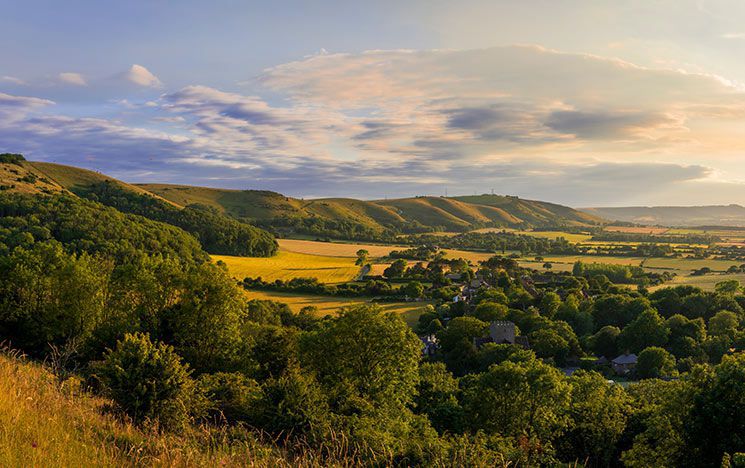Nature-based solutions for climate change
Developing a new tool to map and model land use

Solutions to climate change are all around us – from trees that absorb carbon to soils that hold it in the ground. The Intergovernmental Panel on Climate Change estimates that nature-based solutions could contribute as much as 30% of the global mitigation needed to meet the Paris Agreement goals.
To help explore the trade-offs between different land-use priorities – such as carbon storage, biodiversity, food production and cultural values – Professor Fiona Marshall is working with a transdisciplinary team on a new landscape mapping and modelling tool. Incorporating social, economic and ecological data alongside informatics and machine-learning technology, the tool can visualise and assess different nature-based solutions for specific areas of land, as well as modelling the impact of future land-use scenarios.
One of our key aims is to make information accessible to stakeholders, from farmers to local authorities. Once users have a comprehensive picture of their land – for example, where carbon stores are building up – they can make informed decisions about sustainable land use.” FIONA MARSHALL
Professor of Environment and Development
The project involves engagement with local decision-making processes and key stakeholders. “We want the platform to become a kind of meeting point where we can collaboratively explore the changing function and value of landscapes, and consider different solutions to the challenges we all face,” says Marshall. Initially working on mapping areas of Sussex, the team also hopes to bring the tool to other locations and to inform wider policy and practice, for example, looking at how to combine progress towards net zero with progress towards environmentally sustainable and inclusive city-region food systems.
The project builds on work in India and China, where colleagues from the Business School and the School of Engineering and Informatics worked with international partners on a prototype of the tool.
Further information
The Sussex project is part of a broader UK government-funded Nature-based Solutions for Climate Change at the Landscape Scale project led by Natural England, the Environment Agency, RGB Kew and the Forestry Commission.
The collaborative team consists of Fiona Marshall, Jonathan Dolley and Simona Panaro from the Science Policy Research Unit in the Business School; Jeremy Reffin, Novi Quadrianto, Paul Crossley and Oliver Thomas from the Predictive Analytics Lab in the School of Engineering and Informatics, and Izabela Delabre from the Department of Geography at Birkbeck, University of London.
Photo credit: suxxesPhoto, Adobe Stock.